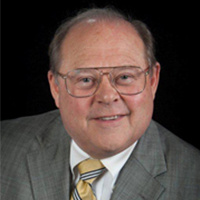 Buford Criminal Lawyers, Georgia
Buford Criminal Lawyers, Georgia
Sponsored Law Firm
-
 x
x

Click For More Info:
-
Ronald Baker Attorney at Law
11877 Douglas Rd Suite 102191 Johns Creek, GA 30005» view mapIntellectual Property Law Working Relentlessly For You
Ronald Baker is a practicing lawyer in Georgia who handles cases involving Intellectual Property Law.
800-597-8640
Sponsored Lawyers
1-10 of 25 matches
Accident & Injury, Bankruptcy & Debt, Divorce & Family Law, Criminal
Stephen Suarino is an Immigration, Real Estate, Accident & Injury, Estate, and General Practice lawyer in Norcross, Georgia.
(more)Accident & Injury, DUI-DWI, Traffic
Attorney Carl Chapman is a trial lawyer who specializes in criminal defense and thrives in the courtroom. He served as second-chair in the Atlanta Public Schools (“APS”) cheating scandal which was a racketeering (“RICO”) prosecution that resulted in the longest, most expensive trial in Georgia history. Within two weeks of obtaining his license, he won his first trial as lead counsel and never looked back. He has handled hundreds of cases and always shows up ready for trial. Carl provides the highest quality representation to every client, and his knowledge of case law and passion for criminal defense is unmatched. He truly believes every case is winnable. Therefore, he prepares every case for trial. He believes in honest and open communication because trust is the foundation of a positive attorney-client relationship. Carl is originally from Warren County and attended Briarwood Academy where he graduated as Valedictorian and Star Student in 2008. He graduated with honors from Georgia Southern University in 2012 with a degree in Political Science and a minor in Fraud and Forensic Accounting. He continued his education at Georgia State University College of Law and obtained his Juris Doctorate in 2015. During law school, Carl focused his studies on advanced litigation techniques and complex evidentiary issues. He coupled those studies with real-world applications and gained invaluable courtroom experience with some of the most well-respected attorneys in Georgia. He interned with Peters, Rubin, & Sheffield, P.C., in Decatur, Georgia where he had the opportunity to work on the APS case which, as previously mentioned, was the longest, most expensive trial in Georgia history. He also interned with the Federal Defender Program in Atlanta, Georgia which represents indigent defendants in the Northern District of Georgia. During that time, he assisted with the research and drafting of appellate briefs for the Eleventh Circuit Court of Appeals. Prior to opening the Law Office of Carl Chapman, he worked for the Law Offices of W. Scott Smith in Atlanta, Georgia which is recognized as one of the top criminal defense firms in the state. In his three years with the firm, he gained invaluable experience from being in the courtroom daily and handling a wide variety of criminal offenses. If you hire attorney Carl Chapman, you can rest assured that you will get the individual attention you deserve and will deal directly with him from the very beginning. He will work to shoulder the burden of your charges. Remember, your charges do not define you, and Carl will work with you to ensure that you receive the best result possible. Lawyer.com Member Questionnaire Please describe a case(s) in the last year or two where you made a big difference. I can feel my impact the most at the end of long jury trial when the jury returns a verdict in favor of my client. That feeling is unmatched, but I also feel like getting a client their desired outcome during pre-trial negotiations is an even greater accomplishment. A good outcome is relative to the facts of the case and really dependent on what the individual client wants. I like to have each client rank his or her priorities at the outset of the case so I can get them the best offer possible tailored to their specific needs. If that final offer is unsatisfactory, then we ask for a jury trial. How did you build a successful practice? I have built a successful practice through preparation and client communication. Those two concepts go hand in hand to the extent that you never want to learn a new fact in court. I always know the case better than my opposing counsel, and I am always accessible to clients so they can tell me things about their case or ask questions about the legal process. What should clients look for in a lawyer? I always tell clients that they have to go with the attorney that makes them feel the most comfortable. I don’t mean to say that they should choose the attorney who promises them the moon. No, they have to see through that salesman and know that no attorney can make promises about a specific outcome. However, it is possible to get a sense of what the attorney will do to ensure the client gets a good outcome. You should ask questions and the attorney should ask questions of you. How important is local knowledge to the success of your cases? I usually tell clients not to hire me just because I know the judge or opposing counsel. I know many attorneys that have good relationships with opposing counsel because they always settle or plea out their cases with less than optimal terms for their clients. I don’t take a scorched-earth approach, but if I have to choose, I would always rather be respected than liked. The law and the facts of your case dictate the appropriate outcome. You need an attorney that understands both. If they happen to be local, then that’s just an added benefit. What information can you provide in a free phone consultation? I answer the potential client's questions and explain the legal process. I also indicate what I would do in a case like theirs. What information do you need in a free phone consultation? I need to know the facts of the case (why do you or your loved one need me), the jurisdiction (what county or city), where the case is procedurally (just happened or about to start a jury trial). If the caller knows some but not all of this information, then I can still evaluate the case. However, the more information I have, the better I can assist the caller. What differentiates you from other lawyers in your community? There are many attorneys who can handle your case. Some will do a good job. Some will provide great customer service. Few will do both. Some will do neither. I will never speak poorly about other attorneys. However, I know that I can get you the best possible outcome. What is the most rewarding aspect of your job? The most rewarding aspect of my job is catching an opposing witness in a lie. However, not all cases get to that point where I can have a Perry Mason moment in the courtroom. Resolving a case favorably without the theatrics of hearing can be almost as satisfying. I like to know that if I’m ever needed in the future, the client won’t hesitate to call me. What are your other interests in addition to law? I enjoy spending time with my family and staying active. Physical fitness, mental stamina, and emotional well-being go hand in hand. The practice of law is a marathon not a sprint, and I aim to be around for the fifty years. Are you involved in your community? I have recently moved to a new home in a new area, but I will become more involved in the coming years. Specifically, I plan to start coaching a mock trial team at the local high school.
(more)Business, Estate, Real Estate, Divorce & Family Law, Criminal
Attorney Putnam C. Smith represents Main Street business owners and executives, professionals of all types and local, regional and national real estate investors, developers and operators, concentrating on business and commercial real estate transactions and tax and estate planning. Common transactions include start-ups, acquisitions and sales of closely held business, tax-free mergers and reorganizations, asset purchases, leveraged buyouts and joint ventures and partnerships in a wide range of industries. He has practiced corporate law in Atlanta and the surrounding metropolitan area since 1988, initially with Nall & Miller, LLP and later with Robert W. Fisher, P.C., a tax boutique that was instrumental in the creation of Nextel and a number of international ventures in the telecommunications industry before disbanding in 1994. Before attending law school, he incorporated Jimmy Carter’s 1976 presidential campaign and worked as a legal assistant with other leading Atlanta law firms, including King & Spalding, LLP and Kilpatrick Stockton, LLP, gaining invaluable experience with public corporations and investment banks. During his tenure with Lipscomb, Johnson, Sleister, Dailey & Smith, LLP, Mr. Smith has handled private equity investments in shopping centers and industrial and commercial property in several southeastern states, land assemblages requiring services ranging from quiet title actions to road closures and a $116 million buyout to resolve a shareholder’s dispute involving a closely held technology business.
(more)


 Ronald Baker Johns Creek, GA
Ronald Baker Johns Creek, GA



